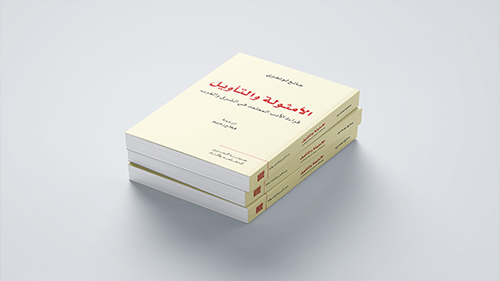Contact Center
.
05 July 2021
The Knowledge Transfer Project’ Latest Publications
Is “Allegoresis: Reading Canonical Literature East and West” by Zhang Longxi


why is it that a text, particularly a canonical text, is often said to contain a meaning different from what it literally says? how did allegorical readings arise and develop? by looking at such examples as jewish and christian interpretations of the song of songs and traditional chinese commentaries on the confucian classic book of poetry, zhang longxi discusses allegorical readings from a broad perspective that bridges the usual east/west cultural divide and examines their social and political implications. his approach is wide-ranging, cross-cultural, and cross-disciplinary, exploring allegoresis with regard to religion, philosophy, and literature.
in his inquiry into allegory and allegorical interpretation, zhang examines the idea of a self-explanatory text of the bible as conceived by augustine, aquinas, and luther; discusses the importance of the literal basis of textual interpretation; and takes up the question of moral responsibility and political allegiance. zhang, who regards utopia as an allegory of social and political ideas, explores how utopian visions vary in their chinese and western expressions, in the process commenting on contemporary literary theory and political readings of literature past and present.
the book titled “allegoresis: reading canonical literature east and west” by zhang longxi” is the 41st in a series of publications by bahrain culture authority in a list that include many translated books.
the first book was “ think: a compelling introduction to philosophy by simon blackburn”, “did greeks believe in their myths?” by the french intellectual paul veyne, and maurice olender, the languages of paradise: race, religion, and philology in the nineteenth century”, and “ psychoanalysis as a science, therapy and cause” by the egyptian psychoanalyst living in france, mustapha safwan. and “non-places: an introduction to supermodernity” by marc augé and three abcs by clarisse herrenschmidt, “the end of the world as we know it” by the american sociologist immanuel wallerstein, “the story of art” by ernest gombrich, “a social history of the media: from gutenberg to the internet” by n asa briggs and peter burke, “einstein, picasso: space, time, and the beauty that causes havoc” by arthur miller, “the content of the form: narrative discourse and historical representation” by hayden white, “ ethnology approach” by pacal debie, and “non-places: introduction to an anthropology of supermodernity” by marc augé, qu'est-ce que le virtuel ? by pierre levy, and “ should we think of the world in another way” by chritian gratello, “the argumentative indian: writings on indian history, culture and identity paperback”, “sociology of religion” by amartya sen, danièle. hervieu-léger, jean-paul willaime “sociology of religion”, irwin dianatelle and michael louis, discourse analysis as theory and method”marianne w jorgensen ““ history at the limit of world history” by ranajit guha, “ the world of thought in china today” by lan chung”, “how to do things with words” by john l. austin, “beyond nature and culture” by philippe descola, “les philosophes et la science” by pierre wagner, “the birth of the museum: history, theory, politics” by tony bennett and “ digital anthropology” by heather a. horst, daniel miller, “sense and sensibilia” by john langshaw austin and “enlightenment contested: philosophy, modernity, and the emancipation of man 1670-1752” by jonathan israel







